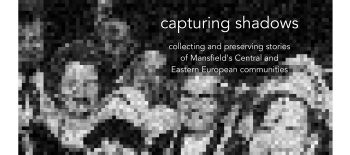She worked hard her whole life, which made her particularly sensitive to the mistreatment of others. She always bravely stood up against various injustices, which earned her the respect and admiration of ordinary people, but also made her an object of persecution by the communist authorities. She was frequently arrested, interrogated, interned and imprisoned. She always remained true to her ideals, believing that ‘Poles might sometimes be poor, but they should never be intimidated’.
She was born in 1929 in the village of Sienne. In 1945, she moved to Gdańsk, where she would spend the rest of her life. At 21 she went to work as a welder at the Gdańsk Shipyard. At the time, welding was physically the hardest and most hazardous of all shipbuilding jobs. Despite these conditions, Anna worked tirelessly for 12 or more hours a day until health problems forced her to slow down. Then she retrained as an overhead crane operator. From 1978, she was an active member of the Free Trade Unions, an illegal organization formed in opposition to the communist authorities. She was one of the leaders of the new organization, even letting her apartment be used as a contact point. This activity caused the most severe harassment from the secret police – including temporary detentions, searches, threats of dismissal, and even attempted murder.
On August 8, 1980, five months before she was due to retire, Anna Walentynowicz was dismissed for indiscipline. Her union associates used this injustice as the pretext for an organized protest against the communist authorities. The demand to reinstate Walentynowicz became the first of the Gdańsk Shipyard workers’ legendary 21 demands in what became the most important strike in modern Polish history, a strike that hastened the fall of communism a decade later. The protest wave that Walentynowicz’s dismissal started gave rise to ‘Solidarity’, which in turn led to the democratic changes in Poland and then throughout Europe in 1989. After the birth of ‘Solidarity’, she played an active role in the movement, constantly incurring the authorities’ hostility by protesting against their various abuses. Her life has been the subject of news reports, books, plays and films. Among her numerous honours and decorations, she received Poland’s highest state distinction, the Order of the White Eagle, for ‘acting to bring about democratic change and win freedom for Poland.’
She died in a plane crash in Smolensk, Russia, on April 10, 2010, while participating in a state delegation, headed by President Lech Kaczyński and his wife, to commemorate the 70th anniversary of the Katyń massacre – the mass execution of Polish officers by the Soviets in the Katyń forest in 1940



